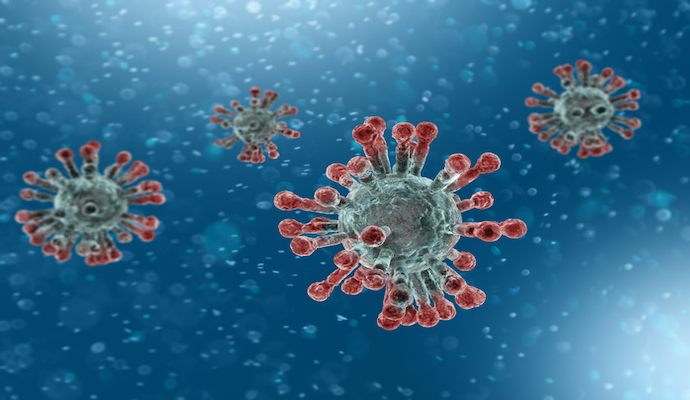Gilead Hints at Remdesivir’s Potential as a COVID-19 Treatment
The pharma company announced positive results from a Phase 3 clinical trial of remdesivir as a potential severe COVID-19 treatment.

Source: Thinkstock
- Gilead Sciences recently found that using remdesivir as a COVID-19 treatment for severe coronavirus patients produced positive results in a Phase 3 clinical trial. Severe coronavirus patients receiving a ten-day treatment of remdesivir achieved similar clinical improvement compared with those taking a five-day treatment course, the company announced earlier today.
For more coronavirus updates, visit our resource page, updated twice daily by Xtelligent Healthcare Media.
The Phase 3 clinical trial found that the time to clinical improvement for 50 percent of patients was ten days in the five-day treatment group and 11 days in the ten-day treatment group, researchers stated.
The randomized trial consisted of 397 patients who received remdesivir 200 mg on the first day, followed by remdesivir 100 mg each day until day 5 or 10. These patients also received standard COVID-19 care.
Researchers defined patient improvement as improvement of two or more points from baseline on a predefined seven-point scale, ranging from hospital discharge to increasing levels of oxygen support, to death, the announcement stated.
“The study demonstrates the potential for some patients to be treated with a 5-day regimen, which could significantly expand the number of patients who could be treated with our current supply of remdesivir,” Gilead stated in the announcement. “This is particularly important in the setting of a pandemic, to help hospitals and healthcare workers treat more patients in urgent need of care.”
Over half of patients in both treatment groups were discharged from the hospital by day 14. At day 14, 64.5 percent of patients in the five-day treatment group and 53.8 percent of patients in the 10-day treatment group achieved clinical recovery.
But clinical outcomes varied by geography. Outside of Italy, the overall mortality rate at day 14 was seven percent across both treatment groups, with 64 percent of patients experiencing clinical improvement at day 14 and 61 percent of patients discharged from the hospital.
“Unlike traditional drug development, we are attempting to evaluate an investigational agent alongside an evolving global pandemic. Multiple concurrent studies are helping inform whether remdesivir is a safe and effective treatment for COVID-19 and how to best utilize the drug,” said Merdad Parsey, MD, PhD, chief medical officer at Gilead Sciences.
The study results accompanied data from the placebo-controlled study of remdesivir conducted by the National Institute for Allergy (NIH) and Infectious Diseases at the end of February. The information is intended to help determine the accurate duration of treatment with remdesivir.
During the NIH study, the antiviral showed in vitro and in vivo activity in animal models against the viral pathogens MERS and SARS, which are structurally similar to COVID-19.
Although the company supplying the experimental drug for the trial recently announced it is putting restrictions on "compassionate-use" requests, the new limits won't affect the ongoing clinical trial of remdesivir at the University of Nebraska Medical Center (UNMC).
UNMC is one of six hospitals across the U.S. that has enrolled 80 patients in a clinical study.
In the Gilead study, researchers intended to determine whether a shorter, five-day course of remdesivir would show similar efficacy results as the ten-day treatment regimen used in multiple ongoing studies of remdesivir.
Secondary goals included adverse events and additional measures of clinical response in both treatment groups. Patients were required to have evidence of pneumonia and reduced oxygen levels that did not require mechanical ventilation at the time of study enrollment.
Overall, the trial showed no new safety signals that were identifiable with remdesivir across either treatment group. Gilead plans to submit the full data for publication in a peer-reviewed journal in the coming weeks.
“These data are encouraging as they indicate that patients who received a shorter, 5-day course of remdesivir experienced similar clinical improvement as patients who received a 10-day treatment course,” said Aruna Subramanian, MD, clinical professor of medicine and chief of immunocompromised host infectious diseases at Stanford University School of Medicine. Subramanian was also one of the lead investigators of the study.
“While additional data are still needed, these results help to bring a clearer understanding of how treatment with remdesivir may be optimized, if proven safe and effective.”
